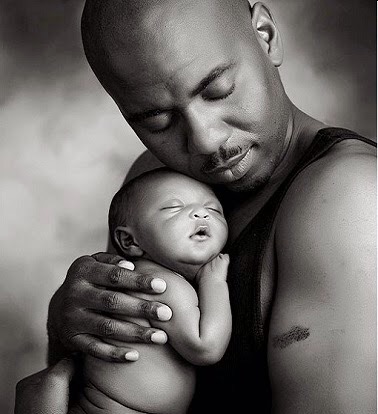Fatherlessness is a serious issue that must be addressed:
An excerpt from this blog post: http://donpesci.blogspot.com/2015/01/the-unmentionable-f-father-word.html?m=1
“Poverty” is the polite word most often used by polite liberals and more earnest progressives to describe the plight of the unmentionable underclass. And no, people who discuss these things are not racist for having so brashly mentioned the unmentionable; namely, that there is an underclass under the noses of most well-intentioned liberals and that this underclass has become a permanent feature of modern day America.
Poverty in the United States has never been, with some rare exceptions, permanent; in fact the impermanence of poverty is what has driven the desperate poor to the United States since its founding. The boast engraved on the pedestal of the Stature of Liberty — “Give me your tired, your poor/ Your huddled masses yearning to breathe free,/ The wretched refuse of your teeming shore./ Send these the homeless, tempest-tost to me,/ I lift my lamp beside the golden door” – is a celebration of the impermanence of poverty. But an underclass has since become a permanent fixture of our social order; it is that very thing the huddled masses were hoping to escape in their desperate flight to America, where a steady advancement up the ladder of success was impeded by speedbumps rather than the fortress walls of a class system that in Europe kept the rich in splendor and the poor in rags, more or less permanently.
It seems ages ago that Senator Daniel Patrick Moynihan of New York warned us all that the African American family – dad, mom, kids — was becoming an endangered species. Part of the problem was – and is – that the welfare system replaced Dad with a kind of sustenance that imprisoned people within the system; welfare clients were held in welfare cages on the periphery of poverty. The more they were helped, the more secure and inescapable their prisons became. A welfare state that was supposed to allow movement from temporary dependency to self-sufficiency became a more or less permanent holding cell, a purgatorium whose doors, unlike the door mentioned in the Emma Lazarus poem, never opened upon more hopeful vistas.
How many fatherless children are there in our welfare system? Lots and lots and lots. For the most part, fatherlessness is a precondition for receiving welfare. And many of the younger “fathers” of children born out of wedlock – how ancient that word sounds – have never made it to the alter. Some of them are in prison. Brought up without fathers themselves, they drifted – like ships without rudders, blown here and there by every ill wind. Their children will drift also, unless they are made of very stern spiritual stuff.
Grandmothers and grandfathers, if they have been lucky enough to remain together, may help. Ministers, priests, rabbis, imams, social workers, other siblings and teachers may help. Still, the chance that a young African American boy whose caretakers have relied on a social welfare system that strives inadequately to “play father to the child” will be able to navigate around the pitfalls that lead to gang affiliation, poor marks in school or a prison cell, is considerably more remote than would be the case if the boy were reared under the watchful eyes of a self-sufficient, responsible and employed father who would love and guide him down sure and well-marked paths. Our social welfare system, however solicitous it may be, has no ethical component to it. And that is what a father is: an ethicist more loving than a minister, a welfare provider more solicitous than a welfare system, a defender of his children more fierce and fearsome than a police chief, a lover of the mother of his children more tender and faithful than any fling of the moment.
Sons need fathers. And a society that cared for fathers and sons — and its own welfare — would not so perversely ignore the ruin at its door.
Read the entire piece HERE

